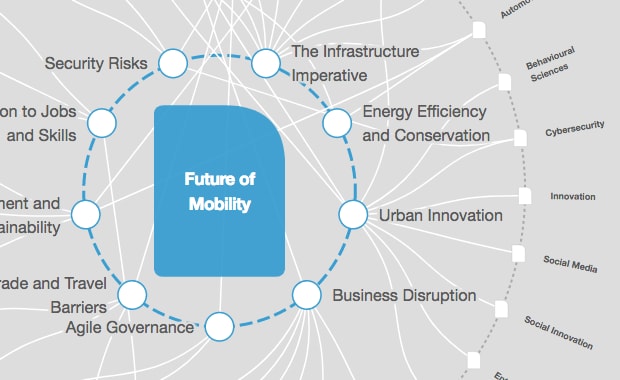Uber's electric bikes to hit Kenyan roads, cutting emissions and costs

Uber's e-bike rollout will be followed by a potential announcement for more markets. Image: Unsplash/Ather Energy

Explore and monitor how Mobility is affecting economies, industries and global issues

Get involved with our crowdsourced digital platform to deliver impact at scale
Stay up to date:
Kenya
- Uber's electric bike rollout will be followed by a "potential announcement" this year for the rest of its markets in the region.
- The new green product will comprise 3,000 bikes within six months.
- Users of the platform will pay 15-20% less than they do for a regular Uber electric bike trip.
- Kenya has been positioning itself as a hub to lead Africa's shift to green transport.
Ride-hailing firm Uber (UBER.N) on Thursday launched an electric motorbike service in Kenya, its first in Africa, as the company seeks to make its global platform emissions free by 2040.
The rollout in Kenya will be followed by a "potential announcement" this year for the rest of its markets in the region, said Kagiso Khaole, Uber's general manager for sub-Saharan Africa.
Uber's other markets in sub-Saharan Africa are Nigeria, Ivory Coast, Ghana, Uganda, Tanzania and South Africa.
Uber's new green product in Kenya, dubbed Electric Boda in a nod to the Swahili term for motorbike taxis, will comprise 3,000 bikes within six months, or just under a fifth of its fleet.
Drivers will see a 30-35% drop in their operating costs, and users of the platform will pay 15-20% less than they do for a regular Uber motorbike trip, the company said.
"You will experience lower vibrations, less sound," Khaole said.

In Kenya, which generates more than 90% of its power from renewable sources and has been positioning itself as a hub to lead Africa's shift to green transport, Uber previously carried out small pilots for electric bikes with external partners.
The growth of the electric vehicles market in Africa has been slowed by a lack of adequate electric charging infrastructure and associated equipment.
Sensing an opportunity, local firms have been setting up battery-swapping stations in major cities like Nairobi to save drivers time.
Kenya's President William Ruto said last month that he wanted to see the number of electric motorbikes on the road increase from the current 2,000 to more than 200,000 by the end of 2024.
Motorbike transport is a big employer in Kenya, absorbing millions of people who are unable to secure formal jobs.
Don't miss any update on this topic
Create a free account and access your personalized content collection with our latest publications and analyses.
License and Republishing
World Economic Forum articles may be republished in accordance with the Creative Commons Attribution-NonCommercial-NoDerivatives 4.0 International Public License, and in accordance with our Terms of Use.
The views expressed in this article are those of the author alone and not the World Economic Forum.
The Agenda Weekly
A weekly update of the most important issues driving the global agenda
You can unsubscribe at any time using the link in our emails. For more details, review our privacy policy.
More on Emerging TechnologiesSee all
Robin Pomeroy and Linda Lacina
April 29, 2024
Maroun Kairouz
April 29, 2024
Tanya Milberg
April 28, 2024
Michelle Meineke
April 28, 2024
James Fell
April 26, 2024






